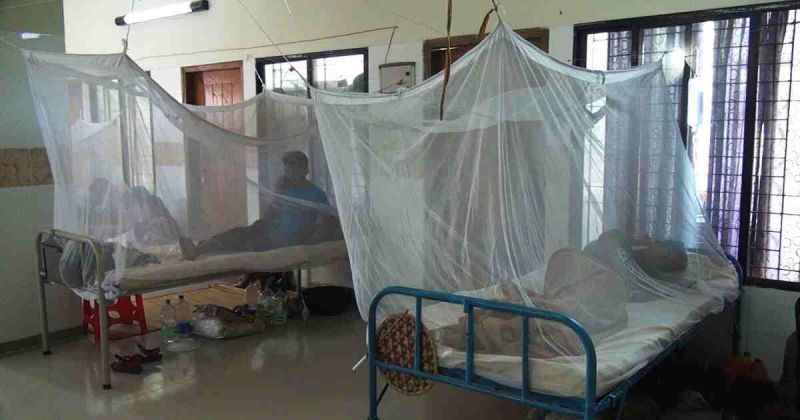- NCP Demands Impeachment, Arrest of President |
- PM Pledges to Modernise, Strengthen Border Force |
- Dhaka Tops Global Pollution List with Hazardous Air |
- Country Observes Martyred Army Day Today |
- 100 CSOs rally against Trump’s trade tactics, urge access to drugs |
High dengue infection rate poses a nat’l crisis: Health Dept

Dengue patients.
DHAKA, July 17 – The Directorate General of Health Services (DGHS) today acknowledged the dengue situation was deteriorating “alarmingly” and warned that continued increase of the infection rate could expose Bangladesh to a national crisis.
“The pressure (of dengue patients) is mounting, if the trend continues our capacity will exhaust,” director general of health services Professor Dr Abul Bashar Mohammad Khurshid Alam told BSS.
Alam said in line with the official mandate his office was handling with the treatment issues but agencies entrusted with the task of preventing dengue carrying Aedes mosquitoes must enhance their campaign to halt phenomenon to prevent the crisis.
The DGHS chief’s comments came as the dengue so far infected 20,878 people and killed 106 of them since January 1, while major health facilities in the capital and other major cities appeared as market places with crowds of dengue patients.
The state-run Mugda Hospital in the capital appeared as the biggest health facilities in the city as its neighbouring areas appeared as the major dengue affected neighbourhoods.
"Mugda Medical College Hospital is 500-bed facility, but it has been forced to admit some 600 dengue patients alone,” Alam said but added that dengue treatment facilities were available in all government hospitals of the capital.
Health Services Division Secretary Dr Md Anwar Hossain Howlader said an instruction was issued for DGHS to monitor private hospitals so that they do not charge extra fees for dengue patients’ treatment.
Amid growing criticism against effective steps to destroy mosquito breeding grounds, the city corporations of Dhaka North and Dhaka South said they were trying to enhance efforts and asked residents to keep clean their neighbourhoods.
Mayor of Dhaka South Barrister Sheikh Fazle Noor Taposh
recently said mobile courts were already deployed to penalize people who owned commercial, residential and under construction buildings if they failed to destroy Aedes breeding grounds within their compounds.
Statistics shows Dhaka South is exposed to higher dengue onslaughts and the DGHS said the number of dengue patients is high in areas like Shonir Akhra, Jatrabari, Sabujbagh, Kadamtali, Basabo and Rampura.
Health experts urged the city corporations to create an adequate number of volunteers to manage the dengue situation properly.
Experts including Alam said the country this year witnessed early rains in summer though the monsoon downpour came in late, a situation which could prolong the dengue crisis.
They called for “community mobilisation” saying this was the most effective initiative to control dengue outbreak.
"Community engagement is very crucial to prevent dengue,” Dr M Mushtaq Hussain, adviser of the Institute of Epidemiology, Disease Control and Research (IEDCR), told BSS.

